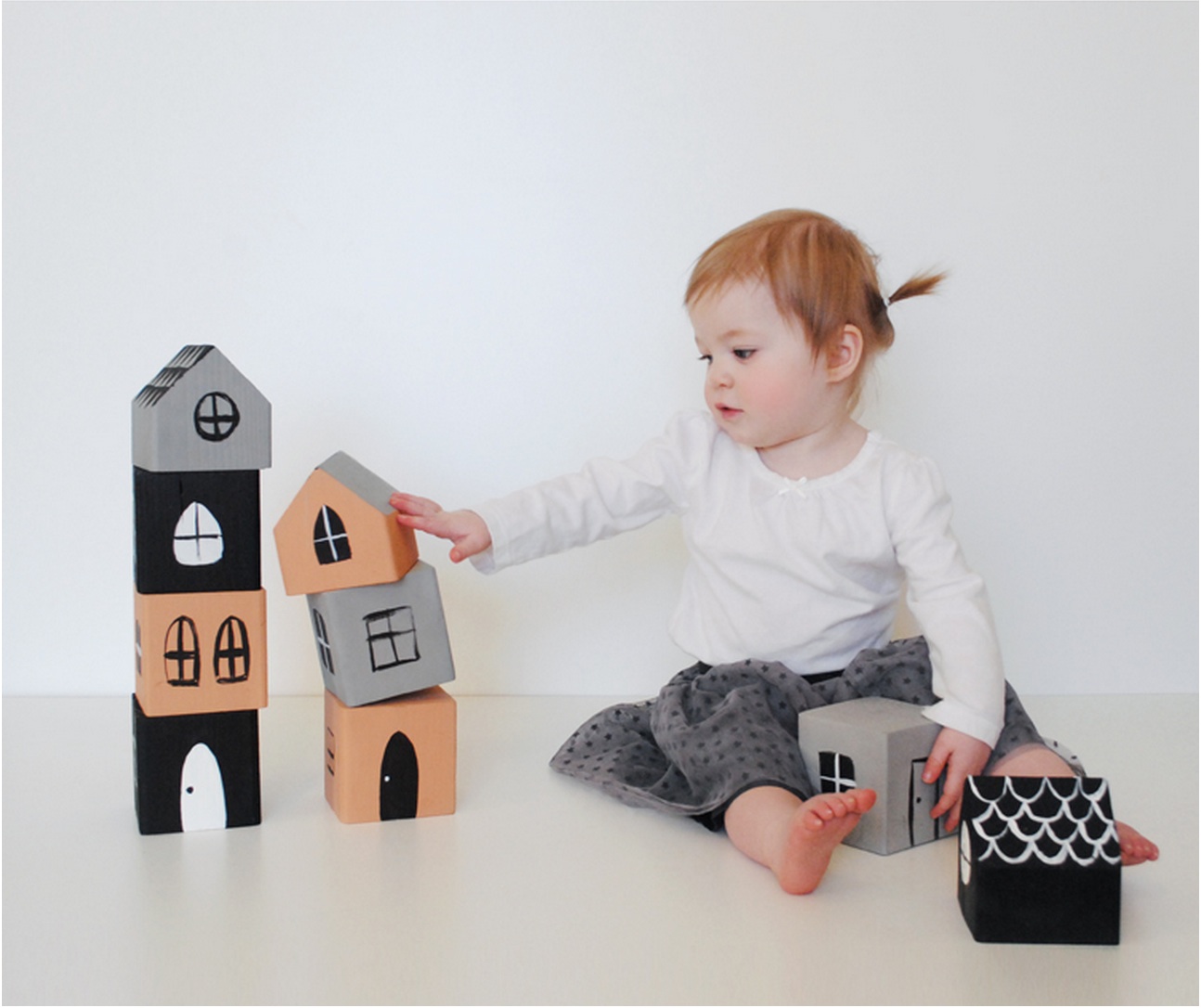
The Dad’s Guide to Teen Dating: Conversations and Guidelines
Navigating the maze of teen dating can be daunting for any father, wondering how best to support their child’s journey into romance. A staggering 71% of teens report being in a romantic relationship by the age of 19, showing just how prevalent dating is during adolescence.
This article offers dads practical advice and clear guidelines for initiating those crucial conversations on love, respect, and safety with their teenagers. Dive in to empower both you and your teen through this pivotal chapter of growth.
Key Takeaways
- Teen dating is common, with 71% of teenagers in relationships by age 19; dads need to talk openly about respect, emotional intelligence, and safety.
- Teach teens the difference between lust, infatuation, and love to help them manage their emotions and recognize healthy relationships.
- Discuss consent and safe sex practices openly; set clear expectations for behavior while also respecting your teen’s individuality and privacy.
- Be aware of warning signs of abuse in teen dating like changes in mood or behavior; offer unwavering support.
- Encourage group dates and meetings in public places to keep early dating experiences safe and under trusted supervision.
Understanding the Importance of Conversations about Dating
Transitioning from establishing the basics, it’s crucial to dive into why conversations about dating hold significant weight. These discussions play a pivotal role in shaping adolescents’ perceptions and experiences with romantic relationships.
They help teens differentiate between healthy affection and problematic behavior that may signal relationship abuse or an unhealthy dynamic. It’s not just about setting rules; it’s also about helping your teen develop a toolkit for emotional intelligence and respect within their interactions.
Focusing on these talks can arm teenagers with knowledge regarding consent, respect, privacy, and the value of open communication—all fundamental elements in combating issues like sexting, jealousy, or even the more severe teen dating violence.
Parents who engage regularly in honest dialogue with their kids set up a foundation built on trust. This emboldens teens to share their feelings without fear of judgment or retribution—a measure that could serve as a critical lifeline should they ever find themselves facing situations involving intimidation or emotional abuse.
Tips for Talking to Teens about Dating and Relationships
Discussing the importance of defining a healthy relationship, distinguishing between different types of attraction, and having open and realistic conversations about sex. Setting expectations and boundaries is also crucial in guiding teens through their dating experiences.
Defining a Healthy Relationship
A healthy relationship for teens includes several crucial elements like respect, trust, honesty, and solid communication. These qualities help form the backbone of a strong partnership where both individuals feel supported and valued.
Parents should express to their children that mutual support is fundamental in any relationship and highlight how essential it is to maintain individuality while being part of a couple.
Next on the agenda is distinguishing between feelings that are often confused: lust, infatuation, and love. It’s vital for teens to recognize the differences as they navigate their emotions during dating experiences.
Distinguishing Between Lust, Infatuation, and Love
Teens often experience strong emotions that can be confusing. Lust is a powerful physical attraction, driven by desire and often focused on satisfying immediate pleasures. Infatuation comes with an overwhelming sense of admiration and often involves putting someone on a pedestal, thinking they can do no wrong.
Love, however, is deeper; it includes respect, trust, honesty, communication, and support. It takes time to grow and isn’t just about how someone makes you feel physically or emotionally.
Understanding the differences between these feelings helps teens navigate their relationships with clarity. By using resources like loveisrespect.org, they learn to identify what healthy connections look like.
This knowledge empowers them to make informed choices in their interactions with others as they continue discussing realistic expectations about sex and building strong relationship boundaries.
Discussing Realistically about Sex
Talking about sex with your teen means being honest and open. It’s crucial to discuss the emotional aspects, potential risks, and responsibilities that come with sexual activity. Explain birth control options, the importance of consent, and how to stay safe.
Share facts on sexually transmitted infections (STIs) and underscore the value of mutual respect in any sexual relationship.
Address myths they may have heard from peers or seen in pornography. Stress that real intimacy is not like what’s often portrayed in media—it involves communication, trust, and understanding between partners.
After covering these essentials of a responsible approach to sex, it’s important to lead into setting clear expectations and boundaries within dating relationships.
Setting Expectations and Boundaries
Setting expectations and boundaries is crucial for guiding your teen’s dating behavior. It helps them understand what is acceptable and what is not, ensuring a healthy dating experience. Here are the key elements to consider in setting expectations and boundaries:
- Define clear curfews for when your teen should be home on a date night.
- Establish restrictions on places they can go and activities they can engage in while on a date.
- Discuss financial responsibilities and spending limits when going out with a partner.
- Remind your teen about the importance of open communication about their whereabouts and who they are with.
Recognizing and Addressing Different Types of Abuse
Identify warning signs of abuse in teen dating relationships and offer support and help. Keep an open dialogue about different types of abuse, including physical, emotional, and sexual abuse.
Identifying Warning Signs
Recognize signs of isolation and social withdrawal.
- Pay attention to sudden changes in behavior or mood.
- Be mindful of controlling or possessive behavior towards your teen’s partner.
- Observe patterns of jealousy, manipulation, or verbal aggression in the relationship.
- Take note of any physical marks or unexplained injuries on your teen.
Offering Support and Help
When your teen is navigating the complexities of dating and relationships, it’s crucial for you as a parent to offer unwavering support and help. Be present to listen, validate their feelings, and provide guidance when needed.
By creating an open and non-judgmental environment, you can empower your teen to seek your support whenever they face challenges or have questions about dating dynamics.
If you notice any signs of distress or concerning behavior in your teen related to their dating experiences, do not hesitate to reach out for professional assistance from mental health providers or therapists specializing in adolescent development.
Your proactive approach can make a significant impact on ensuring the emotional well-being of your teenager during this crucial phase of their life.
Fostering Open and Respectful Dialogue
Encouraging open communication and using gender-inclusive language to promote a respectful dialogue with your teen about dating and relationships. It’s important to ensure neutrality towards sexual orientation, allowing for an open and honest conversation.
Using Gender-Inclusive Language
When discussing relationships and sexuality with teens, it is crucial to use gender-inclusive language that recognizes and respects diverse identities. Avoiding gender-specific assumptions or stereotypes fosters an inclusive environment where all individuals feel valued and understood.
By using neutral terms like “partner” instead of assuming a specific gender, parents can create an open dialogue that embraces the spectrum of gender identity and sexual orientation.
Incorporating gender-inclusive language encourages teens to express themselves authentically without feeling limited by traditional societal norms. This approach promotes acceptance, understanding, and validation for all individuals in their journey of self-discovery within relationships and personal identity.
Embracing gender inclusivity facilitates meaningful conversations about dating, helping teenagers navigate their emotions, desires, and boundaries effectively.
Ensuring Neutrality to Sexual Orientation
Discussing teen dating with open-mindedness towards sexual orientation is crucial. Parents should maintain a neutral stance to make their teens feel accepted regardless of their sexual orientation.
Using inclusive language and being supportive helps in fostering trust and openness in conversations about dating.
Understanding the importance of ensuring neutrality towards sexual orientation supports your teen’s emotional well-being. It fosters an environment where they feel safe to express themselves authentically, leading to healthier relationships and self-acceptance.
Setting Dating Guidelines for Teens
Establishing clear curfews, setting ground rules, meeting your teen’s date, and knowing their location are essential components of establishing boundaries and expectations for teen dating.
Establishing a Curfew
Setting a curfew for your teen can help ensure their safety and well-being during the dating process. Parents are advised to establish clear guidelines around when their teen should be home, taking into account factors such as the location of the date and transportation arrangements.
This not only helps prevent late-night risky situations but also fosters trust and open communication between parents and teens, promoting mutual respect.
To maintain consistency in enforcing curfews, parents can discuss specific consequences for violating the set time limits while also allowing room for flexibility on special occasions.
Setting Ground Rules
To ensure the safety and well-being of your teens as they begin to date, it’s crucial to set ground rules. This involves establishing clear expectations and boundaries for their interactions with potential partners.
Setting ground rules allows parents to communicate their values and standards, guiding teens in making responsible decisions regarding dating. By discussing curfews, meeting locations, and communication expectations upfront, parents provide structure that fosters trust and understanding between themselves and their teens.
Making sure that your teen understands the importance of respecting others’ boundaries while also communicating theirs is a key aspect of setting ground rules. It empowers them to establish healthy relationships based on mutual respect while also promoting open dialogue about what is acceptable behavior in a relationship.
Meeting Your Teen’s Date
As a parent, meeting your teen’s date is important to establish trust and ensure your teen’s safety. It provides the opportunity to gauge the character of their potential partner and make sure they are respectful and responsible.
Meeting in a public place allows for an initial interaction, giving you insight into the person your teen is dating without being intrusive.
Setting expectations about behavior towards each other will help both parties understand what is acceptable within the relationship, fostering open communication and respect. This also allows for early intervention if any red flags are noticed during the meeting with your teen’s date.
Knowing Your Teen’s Location
Enforce a curfew and use parental control apps to monitor your teen’s whereabouts and online activity. Meet your child’s date, establish ground rules, and encourage open communication about their whereabouts and who they are with.
Set expectations and boundaries for your teen’s dating activities to keep them safe.
Ensuring Dating Safety for Teens
Promoting safe drinking habits, discussing consent, and encouraging group dates are essential for ensuring the safety of teens in their dating relationships. Read more about these important guidelines for teen dating on our blog.
Encouraging Group Dates
Encouraging group dates initially fosters a sense of security and comfort for teens. This approach allows them to develop social skills while also providing a safe environment for getting to know potential partners.
Meeting in public places not only ensures safety but also eliminates pressure to engage in intimate activities, allowing the focus to remain on getting to know each other better.
As parents, it’s crucial to accept your teen’s partner unless there are tangible concerns for their safety. By doing so, you foster an open and trusting relationship with your teen, enabling them to confide in you if they encounter any challenges or need guidance.
Ultimately, promoting healthy dating habits through group interactions lays a foundation for respectful relationships as teenagers grow older.
Meeting in Public Places
To ensure the safety of teens while dating, meeting in public places is crucial. It provides a neutral and secure environment for both parties to interact and get to know each other.
This also offers an added layer of protection as it reduces the risk of potential danger or abuse that may arise when meeting in private settings. Encouraging group dates can further enhance this safety measure, promoting a supportive and social atmosphere while allowing parents to monitor their teen’s interactions without intruding on their privacy.
Additionally, discussing consent within the context of meeting in public spaces helps reinforce respectful and consensual behavior among teens.
Meeting in public places is essential to promoting a safe dating environment for teens. It allows for open communication with parents, fosters accountability, and creates opportunities to discuss healthy boundaries within relationships.
Discussing Consent
Teens need to understand that consent is an ongoing conversation, especially when it comes to sexual activity. It’s essential to teach them that respecting personal boundaries and recognizing uncomfortable situations is crucial for their safety.
Encouraging open dialogue about what consent means and how to navigate these conversations respectfully can help teens make informed decisions and set healthy boundaries in their relationships.
This fosters a culture of respect and understanding, contributing to safer dating experiences for teenagers.
Promoting Safe Drinking Habits
After discussing consent, it is essential for parents to promote safe drinking habits among their teens. Educating them about responsible alcohol consumption is crucial in ensuring their safety and well-being during dating experiences.
Parents can have open discussions with their teens about the potential risks of excessive drinking, emphasizing the importance of making informed decisions and resisting peer pressure.
Encouraging moderation and providing guidance on how to recognize potential dangers related to alcohol use helps teens develop a sense of responsibility and empowerment in social situations.
To further support safe drinking habits, parents can set clear expectations regarding alcohol consumption during dates or outings. Establishing rules around designated drivers, avoiding binge drinking, and remaining vigilant against drink tampering are proactive ways to safeguard teens from harmful consequences associated with alcohol misuse.
Addressing Special Challenges in Teen Dating
Recognizing and addressing dating abuse, navigating online dating apps, and accepting your teen’s partner are all important challenges to address when it comes to teen dating.
Recognizing Dating Abuse
Recognizing dating abuse is crucial for parents and teens. It involves paying attention to warning signs such as controlling behavior, isolation from friends and family, or physical violence.
It’s important to have open conversations with your teen about what constitutes a healthy relationship versus an abusive one. By empowering your teen with the knowledge to recognize and address dating abuse, you can help prevent them from experiencing the harmful effects of an abusive relationship.
Identifying potential signs of dating abuse early on can help protect teens from harm. Encouraging open communication in relationships may help teens recognize when their boundaries are being crossed, fostering respect and safety in their relationships.
Navigating Online Dating Apps
After recognizing and addressing dating abuse, it’s essential to navigate online dating apps with teens. With the prevalence of online communication and social media, it’s crucial to have open discussions about safe practices when using these platforms.
Encourage your teen to use reputable dating apps that prioritize safety measures for young users.
Discuss the importance of setting privacy settings and guidelines for sharing personal information with strangers. Emphasize the significance of verifying the identity of potential dates and meeting in public places with friends or trusted adults nearby.
Accepting Your Teen’s Partner
Refrain from judgment when meeting your teen’s partner; keep an open mind and offer them the respect they deserve. Encourage open dialogue with your teen about their partner, expressing genuine interest in getting to know them.
Emphasize the qualities you admire in their relationship to foster a positive and supportive environment for your teen. Promote mutual understanding between both parties by being inclusive and welcoming towards their partner.
Acceptance of your teen’s partner is essential, showing that you value their choices and trust them to make decisions that are right for themselves. Engage in thoughtful discussions so both you and your teen feel heard, creating an atmosphere of acceptance rather than resistance.
Building a strong foundation for open communication with your teen about dating and relationships is vital. Teaching your teen to recognize healthy relationships and warning signs of abuse can help them make informed choices.
By setting boundaries, maintaining open dialogue, and fostering mutual respect, you equip your teen to navigate the complexities of dating confidently. Encouraging an environment where your teen feels safe to discuss their experiences will empower them as they explore romantic relationships.
Leading by example while providing guidance ensures that your teen develops healthy attitudes towards love and respect in all types of relationships.
FAQs
1. How can a dad talk to their teen about dating?
Dads should have open and honest conversations with their teens about courtship, respect for all genders, and the importance of consent.
2. What topics are important to cover when discussing teen dating?
It is crucial to discuss topics like sex education, mutual respect, recognizing signs of bullying or physical abuse in relationships, and the emotional aspects such as anxiety and depression that may arise from negative experiences.
3. Why is it essential to teach teens about the risks associated with dating?
Teens need guidance on identifying harmful behaviors like stalking, harassment, catfishing; understanding psychological effects like low self-esteem; and knowing how they align with ethics rather than feeling shame or hopelessness.
4. Should dads influence their teen’s view on dating based on religious beliefs?
While imparting wisdom, dads should balance sharing personal or religious beliefs with equipping their children to make informed decisions respecting individual differences such as sexual orientation or heterosexual interests in the opposite sex.
5. Can discussions around teen dating help prevent serious issues like rape or suicide?
Yes! Teens empowered through parenthood-guided discussions are better armed against intimidation and can avoid falling into cycles of abuse that could lead to severe outcomes such as suicide or becoming victims of rape.
6. Where can a dad find more resources on guiding his teen through the world of dating?
A wealth of information is available for parents at places including libraries, amazon.com educational sites like Dotdash – each providing valuable guidelines tailored towards modern challenges teens face in romantic interactions.




